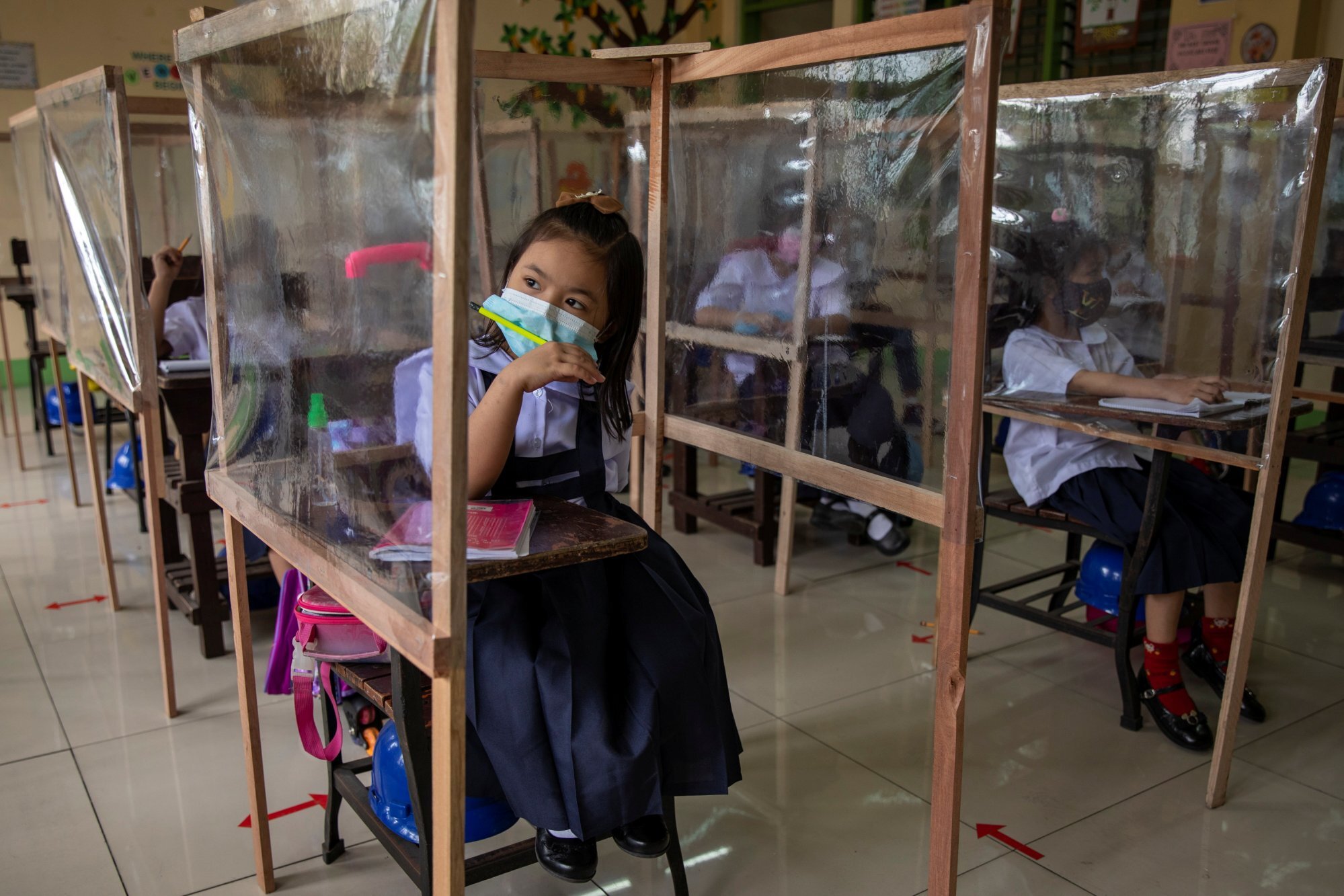
Hong Kong school closure: zero-Covid goal is not worth the damage to children’s learning and long-term economic growth
- With many studies now showing the devastating impact of lost time in the classroom, the government has made a poor decision to shut down schools, especially when reasonable policies can be put in place to minimise risk
But in Hong Kong, the vaccination rate has remained relatively low. Strict border closures have kept case numbers so low that residents who might be wary of getting vaccinated have seen little incentive to overcome their fears. The arrival of Omicron in Hong Kong now looms large because of adult residents’ choices – a price that Hong Kong’s schoolchildren should not be asked to pay.
Hong Kong has more than 300,000 primary students who will be affected by the coming shut-down, many of them severely and permanently.
Primary students are uniquely ill-served by remote schooling, which forces them into a mode of learning deeply out of step with their social, emotional and educational development. While an older student may be able to focus for hours at a time on computer-driven lessons and remote instruction by their teachers, younger students struggle to maintain the attention required for real learning to take place.
Anyone with a young child in home-schooling over the past year has witnessed the uphill battle of teachers who struggle to keep primary-age students focused and on track with their assignments. Some children could not focus at all, easily tempted by nearby computer games that can be played during lessons.

A March 2020 survey by the Education University of Hong Kong found that over 80 per cent of the parents of primary students polled reported that their children had trouble learning at home. Top among the difficulties cited was the child’s lack of concentration. Parents also expressed frustration with a lack of resources at home and their inability to support online learning.
Nothing can replace a classroom. Over the past two years, Hong Kong children have lost hundreds of hours of in-person schooling, leaving children with less time to prepare and consolidate fundamentals meant to be learned in early education.
As primary schools shut down again, those losses will be compounded and possibly unrecoverable, especially for children whose families don’t have the time or the financial resources to make up for the lost opportunities by hiring private tutors or guiding the children themselves.
No focus, unfit and anxious: the toll online learning has taken on students

Hong Kong ought to be in the latter category by any rational measure, including the ability of its top-flight health care system to treat the sick. Hong Kong and mainland China’s willingness to sacrifice education to maintain zero-Covid policies will damage long-term economic growth – especially competitiveness with countries that have prioritised children’s schooling in the latter phase of the pandemic.
Education is the driver of the new economy, and the educational losses suffered by Hong Kong’s children will take a generation to recover.
Around the world, students are now back in school full-time, even as the virus infects hundreds of thousands of new people every day. Hong Kong’s decision to close schools is no longer a rational response to a virus that presents low risk to the vaccinated.
Those who exercise their right not to be vaccinated can opt to self-isolate or evaluate their own risks. They can no longer expect others – especially children – to suffer or sacrifice their education to protect them.
Collin Levy, a writer in Hong Kong, was a speech-writer to former US president George W. Bush

